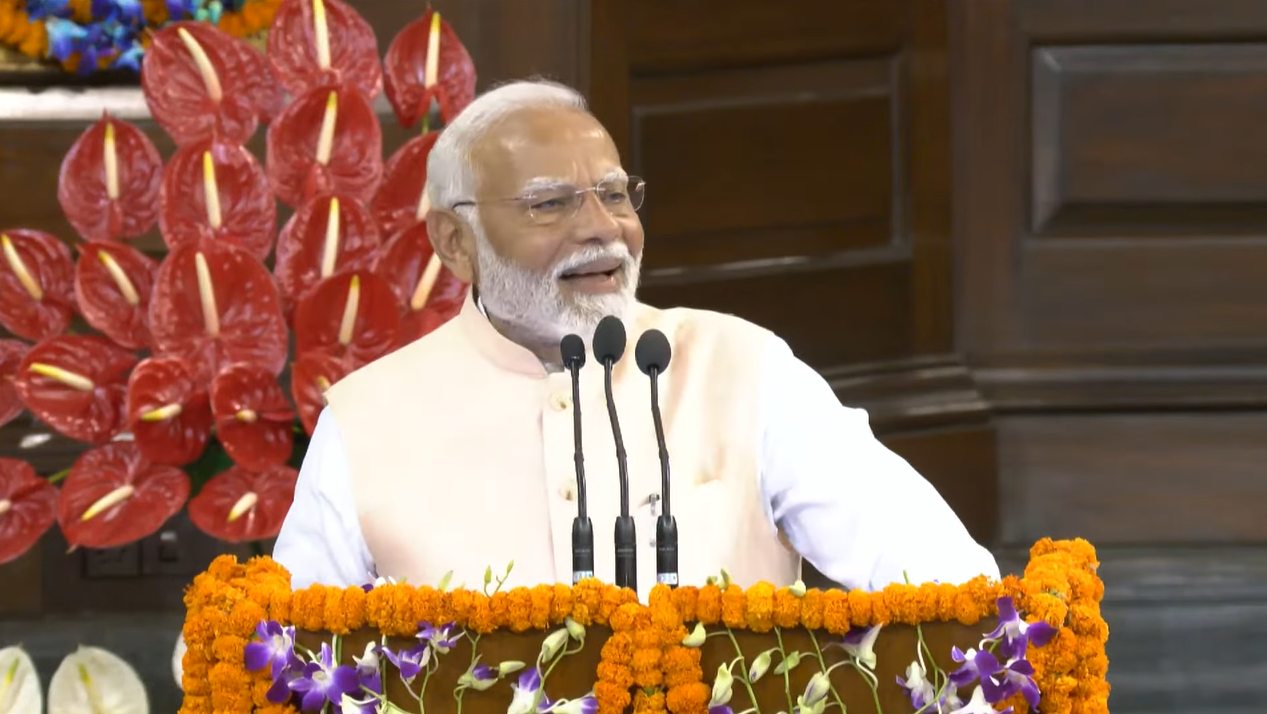Prime Minister Narendra Modi’s recent remarks endorsing Electronic Voting Machines (EVMs) as the cornerstone of India’s electoral process have ignited a polarized debate, underscoring the complexities surrounding electoral transparency and public trust.
Addressing the NDA Parliamentary Meet, Modi lauded EVMs for their role in ensuring free and fair elections, asserting that they have silenced the opposition’s skepticism. However, his endorsement has divided public opinion, with proponents lauding the efficiency of EVMs and critics raising concerns about their vulnerability to manipulation.
Supporters of EVMs argue that electronic voting systems have streamlined the electoral process, minimizing logistical challenges and reducing the scope for malpractices. They contend that EVMs have enhanced the transparency of elections, enabling swift and accurate tabulation of votes while deterring electoral fraud.
“EVMs represent a significant advancement in electoral technology, empowering millions of voters to participate in the democratic process with confidence,” remarked a supporter of EVMs. “Their use has bolstered the integrity of elections and reinforced the democratic principles upon which our nation is built.”
However, detractors question the reliability and security of EVMs, pointing to incidents of alleged tampering and malfunctions reported in past elections. They argue that electronic voting systems lack transparency and auditability, making them susceptible to manipulation and eroding public trust in the electoral process.
“The Prime Minister’s endorsement of EVMs glosses over the legitimate concerns raised by citizens and opposition parties regarding their integrity,” expressed a concerned citizen. “We need greater transparency and accountability in our electoral system to ensure that every vote is counted accurately and every voice is heard.”
The debate over EVMs has reignited calls for electoral reforms aimed at enhancing transparency, verifiability, and accountability. Suggestions range from the implementation of Voter Verified Paper Audit Trails (VVPATs) to the adoption of open-source software for EVMs to facilitate independent scrutiny and verification.
“Electoral transparency is essential for the functioning of a healthy democracy,” affirmed an electoral reform advocate. “We must strive to strengthen the safeguards in place to protect the integrity of elections and uphold the trust of the electorate in the democratic process.”
As India prepares for future elections, the discourse surrounding EVMs and electoral reforms underscores the imperative of fostering an inclusive dialogue that addresses the concerns of all stakeholders. By embracing technological advancements while safeguarding electoral integrity, India can uphold the democratic values enshrined in its Constitution and ensure that elections reflect the will of the people.



